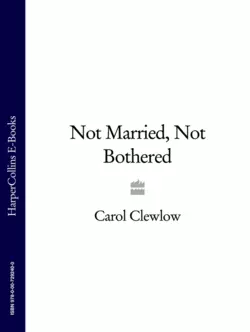Not Married, Not Bothered

Carol Clewlow
Тип: электронная книга
Жанр: Современная зарубежная литература
Язык: на английском языке
Стоимость: 152.25 ₽
Статус: В продаже
Издательство: HarperCollins
Дата публикации: 16.04.2024
Отзывы: Пока нет Добавить отзыв
О книге: Witty and highly entertaining take on being single. Perfect for fans of Trisha Ashley. From the author of A Woman’s Guide to Adultery.Riley Gordon has no issues, no life crises and is happily enjoying the single life. But her persistent single status seems to be cause for much unwelcome discussion and everybody, including her own mother, feels the need to give her the benefit of their advice.Why can’t they just mind their own business? And what, exactly, is wrong with being footloose and fancy free into your forties?Carol Clewlow, author of A Woman′s Guide to Adultery, has written a wonderfully refreshing, witty novel. Riley is a character all of us would like to have in our lives.